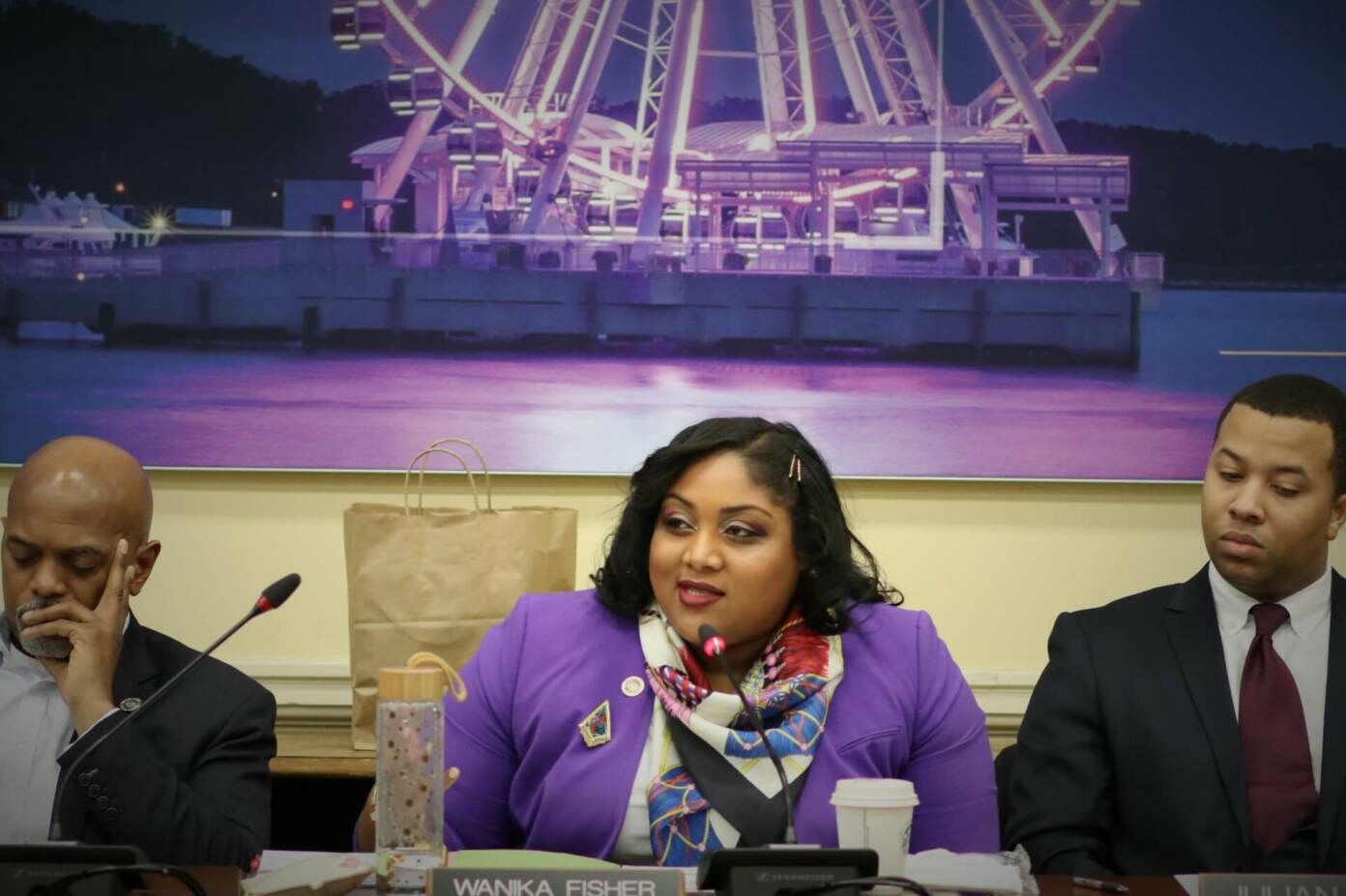This article was republished with permission from WTOP’s news partners at Maryland Matters. Sign up for Maryland Matters’ free email subscription today.

This content was republished with permission from WTOP’s news partners at Maryland Matters. Sign up for Maryland Matters’ free email subscription today.
Maryland lawmakers are seeking to amend the state constitution to establish that everybody has an inalienable right to a healthy environment.
“I think it’s important to formally recognize environmental rights as civil rights,” the bill’s sponsor Del. Wanika B. Fisher (D-Prince George’s) said during a House Environment and Transportation Committee hearing Wednesday afternoon. “This issue is dear to my heart as my constituents face the harsh effects of environmental injustice.”
Fisher spoke specifically of environmental harms that disproportionately affect communities of color — including in her own district in Prince George’s County. Several others also testified of the grim realities of environmental injustices in Maryland.
“Race — not class — is the number one indicator of where a toxic pollution source is located,” Rosa Hance, Maryland chapter chair of the Sierra Club, testified. “We see the disproportionate burden of incinerators, highways, power plants and heavy industry on communities of color.”
Fisher says that the proposed amendment — House Bill 82 — would enable communities impacted by environmental injustice to seek court intervention.
“It’s so important for this to become a constitutional amendment so it gives the legal grounds for a lawsuit to be filed when there are issues impacting communities of color,” Fisher said.
For the measure to be added to the state constitution, the legislature would have to pass the bill, and then the question would be put to voters in the next statewide election.
Representatives from the Maryland Association of Counties, Maryland Farm Bureau, Maryland Municipal League and Maryland Realtors testified in opposition to the bill. They said they feared it would open up a Pandora’s box of pricey litigation and hinder relatively benign development projects.
But, Martin Siegal, an environmental lawyer in Pennsylvania, says that a similar amendment in Pennsylvania (the Environmental Rights Amendment — or ERA — of 1971) didn’t create an onslaught of lawsuits, and didn’t impede new development.
“I look at ERA as putting your thumb on the scale and tipping in favor of the environment when balancing impacts versus benefits,” Siegal said.
In Pennsylvania, minor projects, like building a bridge over a river, aren’t rejected because they only have a limited or temporary effect on the environment. Only projects that cause significant impairment on the environment over time are rejected, Siegal explained.
“I believe that the ERA has led to better informed environmental decision making by state and local governments as well as developers and businesses,” Siegal said. “They now incorporate more in depth environmental assessments and analyses in decision making.”
And, Siegal says, it provides a foundation for protecting the environmental rights of Pennsylvania residents.
Maryland’s proposed law is very similar to Pennsylvania’s, but opponents argue that the language in H.B. 82 is too broad and vague.
H.B. 82 states, “The state or a political subdivision of the state may not cause unreasonable diminution of, or degradation to the state’s natural resources by action or inaction.”
Michael Powell, an environmental lawyer for business interests at Gordon Feinblatt LLC, said the proposed amendment would go beyond what any other state has done in regards to environmental rights.
Powell argues that because a person can sue for inaction, anytime a committee votes to kill a bill, they are exposing the state to a potential suit that by inaction they have failed to protect the environment.
Still, Fisher maintains that the proposed amendment would simply give a legal framework that would ultimately be up to judges to interpret, and that it wouldn’t create excessive and frivolous lawsuits.
“It just really sets a new standard for how environmental impacts need to be taken into account on every decision that we make,” Fisher said.
The legislation is co-sponsored by Del. Erek L. Barron (D-Prince George’s) and Del. Vaughn Stewart (D-Montgomery). The cross file is Senate Bill 151, sponsored by Sen. Obie Patterson (D-Prince George’s).







